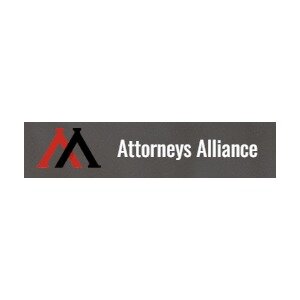Best Native People Lawyers in Kathmandu
Share your needs with us, get contacted by law firms.
Free. Takes 2 min.
List of the best lawyers in Kathmandu, Nepal
About Native People Law in Kathmandu, Nepal
The Native People, commonly known as indigenous peoples in Nepal, encompass a diverse array of ethnic groups with rich cultural heritage and history. In Kathmandu, the capital city of Nepal, these communities include various indigenous groups each with distinct languages, customs, and traditions. Despite modernization and urbanization, many of these native groups strive to maintain their cultural practices and identity amidst broader societal changes. The laws pertaining to Native People in Nepal are designed to protect their unique rights, acknowledging both their individual and collective identities in the socio-political landscape of the country.
Why You May Need a Lawyer
For individuals or communities of Native People in Kathmandu, there are numerous circumstances which might necessitate the need for legal representation:
- Land and Property Rights: Disputes over ancestral land ownership or improper evictions can be complex and require legal intervention.
- Cultural Preservation: Cases involving the protection of cultural sites or indigenous knowledge and practices might need legal safeguarding.
- Discrimination and Equal Rights: Experiencing inequality or discrimination may need legal resolution to secure rights and justice.
- Legal Status and Documentation: Assistance in acquiring citizenship documents or government recognition as indigenous peoples.
- Policy and Advocacy: Engaging in advocacy or policy change efforts on behalf of Native People.
Local Laws Overview
Nepal’s Constitution recognizes the rights of indigenous people, emphasizing their cultural, social, and educational rights. Key legal highlights include:
- Recognition of Indigenous Nationalities: The law acknowledges various groups as indigenous nationalities, granting them specific rights and protections.
- Right to Self-Governance: Provides for local governance structures where indigenous peoples can manage their affairs and resources.
- Protection of Culture and Language: Ensures the preservation and promotion of indigenous languages, script, and cultural heritage.
- Land Rights: Includes provisions to protect indigenous peoples' land and resources from illegal acquisition and exploitation.
Frequently Asked Questions
Who are considered Native People in Kathmandu?
In Kathmandu, Native People or indigenous groups include Newars, Tamangs, Gurungs, and a host of other ethnic communities recognized as indigenous nationalities by the government of Nepal.
What legal rights do Native People have in Kathmandu?
Native People have constitutional rights that protect their cultural, educational, and political interests, including self-governance, land rights, and preservation of cultural heritage.
How can a lawyer help with land disputes for Native People?
Lawyers can offer guidance on legal documentation, representation in court, negotiation settlements, and protection of ancestral land rights under national law.
Are there government initiatives supporting Native People in Kathmandu?
Yes, there are government initiatives and policies focusing on upliftment, development, and preservation of indigenous communities and their rights.
What steps can be taken if a cultural site is threatened?
A lawyer can assist in filing legal actions for preservation and engage with governmental bodies to halt unauthorized developments or interferences.
Can Native People’s customary laws be recognized in legal disputes?
In certain cases, customary laws may be considered during legal proceedings, particularly in local disputes that involve traditional practices.
How can someone verify they are part of a Native People group?
Verification typically involves documentation or certification from recognized indigenous group associations and may require additional legal validation.
What are the educational rights of Native People in Kathmandu?
The law promotes and protects the right to education in their mother tongue and ensures access to educational resources particularly designed for indigenous students.
Do Native People in Kathmandu have representation at governmental levels?
Yes, there are provisions for indigenous representation in local governance structures ensuring their participation in decision-making processes.
How can legal advice help in safeguarding intellectual property related to indigenous knowledge?
Lawyers can aid in documenting traditional knowledge, navigating intellectual property laws, and advocating for its protection and fair use.
Additional Resources
- The National Foundation for Development of Indigenous Nationalities (NFDIN): A governmental body focused on promoting the welfare of indigenous groups.
- Lawyers’ Associations: Local legal associations offer resources and support for cases involving indigenous rights.
- Cultural Preservation Societies: Organizations dedicated to preserving the cultural heritage of Native People.
- Community Centers: Provide support and resources for legal documentation and processes.
Next Steps
If you require legal assistance concerning Native People in Kathmandu, consider the following steps:
- Identify the specific legal issue and gather relevant documentation.
- Seek recommendations for lawyers or legal firms with expertise in indigenous laws.
- Contact the National Foundation for Development of Indigenous Nationalities for guidance and support.
- Schedule consultations with legal professionals to discuss your case and explore options.
- Consider contacting local NGOs or advocacy groups for additional support and advice.
Lawzana helps you find the best lawyers and law firms in Kathmandu through a curated and pre-screened list of qualified legal professionals. Our platform offers rankings and detailed profiles of attorneys and law firms, allowing you to compare based on practice areas, including Native People, experience, and client feedback.
Each profile includes a description of the firm's areas of practice, client reviews, team members and partners, year of establishment, spoken languages, office locations, contact information, social media presence, and any published articles or resources. Most firms on our platform speak English and are experienced in both local and international legal matters.
Get a quote from top-rated law firms in Kathmandu, Nepal — quickly, securely, and without unnecessary hassle.
Disclaimer:
The information provided on this page is for general informational purposes only and does not constitute legal advice. While we strive to ensure the accuracy and relevance of the content, legal information may change over time, and interpretations of the law can vary. You should always consult with a qualified legal professional for advice specific to your situation.
We disclaim all liability for actions taken or not taken based on the content of this page. If you believe any information is incorrect or outdated, please contact us, and we will review and update it where appropriate.














